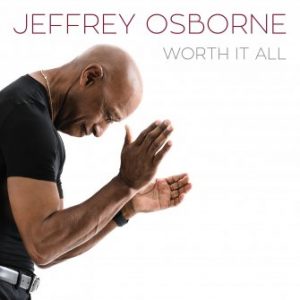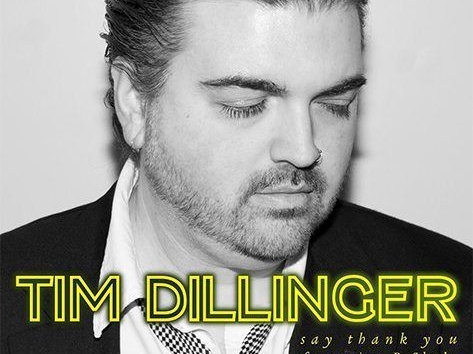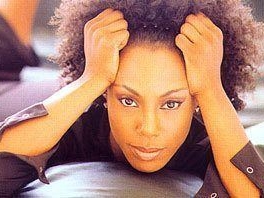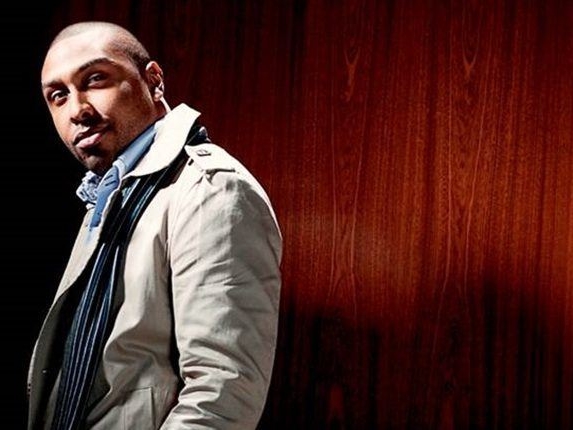Jeffrey Osborne chopped it up with Grown Folks Music about his new album, Worth It All and how he bridged the gap by working with his son on the project. He also spoke about the pleasant surprise of hearing his music featured in The New Edition Story, his missed opportunity to do a duet with Aretha Franklin and his philanthropic efforts through his annual Jeffrey Osborne Celebrity Classic events. Last, but not least– he gave us his definition of Grown Folks Music. Read below and enjoy.
“Music for Grown Folks”
GFM: You have a foundation of hits you could easily rest on and tour off of for the rest of your life. What made you decide to record a new album?
Jeffrey Osborne: It’s been a long time. I haven’t had a album of original material in almost 13 years. My last album I covered jazz standards. The album before that I covered R&B standards. So, it’s been a while since I had an album of original material. As artists we always want to have new music out there. As you get older gets harder and harder. Veteran artists don’t get as many opportunities, but the opportunity came up with Mack Avenue [Records]. They originally asked me to do a smooth-jazz record. As I started writing for the project I realized that my writing was taking me back to my roots of old-school R&B. Music for grown folks [laughs]. I went to them and said, ‘Look, this is where my writing is leading me.’ They said, ‘Great. We don’t have anything like this. Let’s go with it.’ So, I got the opportunity finally do a record, which is why I titled the record, Worth It All. It’s worth it all to me to finally, after a long career, finally get another opportunity to do a record.
Worth It All
Also, the single is called “Worth It All”, but it’s a totally different meaning. It’s about long relationships… grown folks… people that have been married 20 plus years and have gone through the hard ups and downs and have hung in there. It’s so easy to run away and start over again, but then you’re facing the same problems again. The most beautiful thing is to pull it back together and realize that love is worth that. Love is worth it all.
Bridging the Gap
GFM: Around here at Grown Folks Music we like to talk about bridging the gap. Your son was involved with your new album. Tell us about working with him. How did you bring a fresh approach to your music without alienating your core fans who appreciate a certain sound from you?
Jeffrey Osborne: That is the hard thing about doing a new record. You want to stay true to the fans that have supported you all these years. I didn’t want to try to make no youthful sounding record. I wanted it to sound like old school– like I said– for grown folks. But, I did want to incorporate my son. He’s a young, aspiring artist. He’s been doing his own projects. Of course, they do projects and put them online. You know the young people have different philosophy of how to move stuff. I went to him and I said, ‘You know, I could use a track from you. You give me a track, I’ll write a melody and some lyrics to it. Maybe it’ll give me a little different direction on the record.’
The funny thing is he gave me the track, I wrote the lyrics and the melody and it’s probably more hard-core R&B than anything else on the record [laughs]. He’s a rapper, so he’s into more of the hip hop and the rap. It does have a little different flavor, but it’s still a real R&B [record]. I thought it should have been the first single, because I thought that it was a great song. I think it’s a nice story. For me, I never envisioned writing a song with my son because my son went to school to play basketball and was really never into music. But, I guess as he was in the dorms back there with his friends they were rapping and he came home and told me he wanted to rap. I was like, ‘Well, I never heard you rap. I raised you [laughs].’ He got into the studio and he became an incredible sound engineer. He does my sound on the road now. He travels with me all the time. He works with me. He does my sound engineering and we together we wrote this song. Hopefully this album will have some depth to it, ’cause I really feel it should be the next single without a doubt. It’s a song called “Work It”, and he’s rapping on it. It’s kind of fun. It’s a fun song for me to do finally something with someone I never thought I would do it with… my son… of all people.
GFM: Speaking of the young and/or new approaches to creating music, are you using any of the new avenues like streaming and social media to get your new music out? What have been the challenges and advantages of that?
Jeffrey Osborne: We still have to come into modern technology. So yeah, we’re streaming. We’re doing iTunes. We’re doing everything… YouTube. That’s the only way you can move product today. There are no record stores anymore. We used to sell products in record stores. That’s not the way now. Everything is digital download, so you have to move into the modern world of technology. I think it’s incredible. I think you can reach so many more people because there’s so many ways to reach people now.
However, I’m still old school. I like the sound of the old analog records. I thought they were warmer [and] had much more character, but digital has come a long way. The sound is a lot better than it was when it first came out. I like the fact that I can sit in my studio and do a project with someone in another country. We couldn’t do that with the old technology. With the new, modern technology you just can reach… like I said… so many more people. That’s the beautiful thing about it.
“That Magic Is Gone”
GFM: You’ve told the story of “You Should Be Mine” a few times, but my take away from your telling the story is how invaluable songwriters are. I feel like what’s lacking in a lot of the music today is the writing. The writing isn’t as strong because artists want to do it all themselves and they may or may not be the best writers. You’re a writer. You [co] wrote Whitney Houston’s “All At Once”. Talk about the importance of sound writing in R&B… or any genre for that matter.
Jeffrey Osborne: Writing has taken a definite turn and I think it’s not for the better. A lot of it has to do with today’s modern technology. Back in the day, we wrote songs that had verses. Then, they had a bridge. Then, you had a hook. The song just told a story and it’d build musically. Today, they write everything off of a four-bar phrase… the same music over and over and over. Nothing changes except they may do a little different vocal riff. They call that the hook. It’s totally different. Songwriting has changed so much.
I don’t think it’s just the writing. I think it’s the recording aspect of it. Back in the day, you’d go in the studio with all your musicians. You’d start the track and the bass player might play this incredible lick and the guitar player would look over and he’d add on to it and the piano player… and so now you’ve got people playing off of one another. Now you’ve got character in your music. You feel that. You feel that on the record. You feel the magic happening between the musicians. Today, you’ve got one guy in the studio with a producer. He’s got one keyboard. He’s got a bunch of software and there is no interaction with nobody. It’s just flat to me. There’s no character in the music. That magic is gone. I think that, to me, is the difference more so than the songwriting– it’s the way it’s recorded.
“That Man”
GFM: Speaking of telling a story in a record, where did “That Man” on this new album come from?
Jeffrey Osborne: [laughs] “That Man” came from a lot of different areas. I’ve watched people in my lifetime. I watched my father who was very disappointed that he didn’t make it and thought he should’ve. He was definitely better than a lot of other musicians out there, but he had 12 kids. He couldn’t just run out there and play with a 40-piece orchestra. That was the thing– back in the day the [Duke] Ellington’s, the [Count] Basie’s and all those big bands– they were 40-piece orchestras, so you’re just a side man. People think if you’re playing with one of those guys you’re making a lot of money. You’re making money as a side man, so it’s hard to support 12 kids being a side man in a big band. He was a little bitter about that. He felt he should have made it.
I lived that whole thing with LTD. [There were] people in the group who thought, ‘I’m the sh&! I should be doing this and this and that.’ They’re bitter about the fact that they haven’t gotten where they think they should have gotten. That’s what inspired “That Man”. It’s about the character that Denzel Washington played in the movie that he and Viola Davis was in– Fences. That character that thought he was the best baseball player. He didn’t get a shot. He was bitter. He treated everybody bad– even people that he loved like his wife. He treated his wife horribly because he felt that he should have been bigger than he was. That is the story behind “That Man.” I think we all know people like that.
New Edition
GFM: Did you see The New Edition Story? “Holding On [When Love Is Gone]” was a part of the movie. Did that make you smile?
Jeffrey Osborne: That did make me smile. “Holding On” was a big part of that movie. They played it quite a bit. I was pleasantly surprised, although Johnny [Gill] called me. He said, ‘You gotta watch the movie, man. You’re gonna be surprised when you see the movie.’ I had met them early in their career. After their first hit they opened for me at a couple of places. Brooke [Payne], the manager, said, ‘Please come up to the dressing room and talk to these kids ’cause they’re a little wild and they really respect you. They love your song “Holding On”. They’ve been singing it. That’s how they got their deal with the audition and if you gave them some words of wisdom it would really help them.’ So, I went up and talked to them. That was the song that they actually got their record deal with so I was surprised to see when I watched the movie how much they actually played that song in the movie.
Jeffrey Osborne Celebrity Classic
GFM: Speaking of Johnny Gill, talk about the Jeffrey Osborne Celebrity Classic. How do you get so many heavy hitters to come out including Mr. Johnny Gill?
Jeffrey Osborne: I think it’s just relationships that you build up over the years. I’ve known Johnny since he was 16 years old. Johnny used to come over my house every day. I was one of the people that Johnny admired and kind of modeled himself after. There’s not a lot of baritone singers left on the face of the planet. Every male vocalist wants to sing as high as the women out there for some reason [laughs]. It’s really strange to me. Johnny is one of the last of the old-time singers.
I played drums with Smokey [Robinson] when I was in LTD. I played drums with the O’Jays when I was 15, so I know Eddie Levert. I know Smokey. I have relationships with all these people. Me and Johnny are tight. Philip Bailey of Earth Wind & Fire– he usually comes. LTD and Earth Wind & Fire used to tour together.
Beyond that, I have really close friends who are athletes. I built a relationship with the [Los Angeles] Lakers when Magic [Johnson] was a rookie. I became their good-luck charm. I opened their season for 32 years straight singing the [National] Anthem. I sang [at] all the championship games so I got to meet all these great NBA players. I get all the athletes from my relationships and then I get all the singers. It makes the tournament so much fun because we jam. Not only do we have fun playing golf, but we have fun after the golf and before the golf ’cause we get on stage [and] we jam. This year, Ice Cube came and we got Ice Cube up [on stage] and he jammed with us. It was amazing. The tournament is probably one of the better tournaments in the country because we just have such a good mixture of entertainers and athletes.
Roses from Aretha
GFM: Do you have a story or a memory surrounding the Queen of Soul?
Jeffrey Osborne: I met her a while back. We spent time together. When I left A&M Records I went to Arista Records and I had the album Only Human. She was on Arista Records at the time. We became label mates. She reached out to me and said, ‘Let’s do a duet together.’ I was like, ‘This is great. We’re on the same label. That makes it easy.’ She started coming to some of my shows and she’d send me roses backstage. I’d look up and say, ‘Roses from Aretha! Are you kidding me?’ She would come back stage and we would talk and we were trying to find the song. But, the biggest problem we had was Clive Davis. Clive Davis, who was the CEO of Arista Records. Everybody knows his reputation. He was tough to work with as far as recording. He had to have hands on everything. We never found the song. Every song that came through that we thought was good [he’d say], ‘No, that’s not good enough.’ So finally it just fizzled away. That was a really special part of my life to be close with her and to actually have her want to do a duet with me. I was thrilled [laughs] and I wish that we had made that happen.
Quality Of Life
GFM: I can’t let you go without asking you about your health and fitness. It appears that 70 is the new 40. You look fantastic. What’s your secret?
Jeffrey Osborne: Right now my secret is I’ve been vegan for over a year. I’ve always stayed in shape. Since I was 17 years old I’ve been running two miles a day. I’ve never stopped doing that. I work out four to five days a week. I’ve always taken care of myself. Just in the last year or so I figured if I could preserve a few more years and add a few more years to my life then I would do that. I felt that going vegan would help me do it. I did some research, watched a few programs and I realized that at my age I don’t need to have food in my stomach for three days trying to digest it. I think that’s the biggest problem that we as people have. We don’t realize how hard we’re making our bodies work to digest food. If you just switch over to a plant-based diet it’s so easy. The process is so easy. On top of that you feel much better. You get off any meds that you’re on. That’s the kill. All of that pharmaceutical stuff that people are taking is just a little band aid over a sore. It’s not healing anything. But, a natural diet… a plant-based diet will heal you.
It’s tough for me to go out on the road and see so many people in wheelchairs, walking with canes and just the obesity– and it’s all diet. People don’t understand that. I made the switch. I feel better than I’ve ever felt. I don’t push what I do on anybody, but in doing research I see that so many of our people have diabetes and this is all diet. It’s time for people to wake up and start taking care of themselves. You can live a long time eating whatever you want to eat, but what about your quality of life? How does your body feel?
When you wake up in the morning can you jump out of the bed and walk around and go run? Can you do that stuff? The quality of life is the most important thing. I think more people should become aware of it.
I see a lot of artists are switching over and becoming vegan. I see a lot of athletes switching over and becoming vegan. It’s something that people need to take aware of. [For] most people that go into surgery the first thing they put you on after surgery is a plant-based diet,’ cause that’s the only thing that’s gonna heal you. So, why wait ’til you get sick to start eating food that’s going to keep you whole, healthy and heal anything. I’ve seen amazing results from some people close to me that I’ve had switch over to becoming vegan.
I’m a true believer in it. It’s a commitment. People don’t realize that the first month is tough. It really is tough, but after that it’s smooth sailing. I have no cravings or anything. I feel better. There was a period of time when I couldn’t eat three hours before my show because I could feel all that food I’m carrying around on stage. Now, with my diet, I can eat anything I want anytime and go up and do a full show and have no problem. People have to get through that first month because it will loosen up all the toxins in your body. You’re gonna feel weird for about a week or so. You’re gonna say, ‘Oh, what’s going on?’ That’s your body healing itself. You can’t erase 50 years of bad eating in one week. It’s not gonna happen. It’s like anything else… you’ve gotta get through that period. You’ve gotta work through that first month and I guarantee you the results will be amazing. It’s not for everyone. I love it, but I don’t push it on anybody. But, if anybody asks me about it I’ll definitely sit down and walk them through it.
Grown Folks Music
GFM: What is your definition of Grown Folks Music?
Jeffrey Osborne: Music with great melody, great lyrics… that’s the definition of grown folks music. Music that touches everyone. Music that doesn’t alienate people. I have a hard time with music that is degrading to our women. I just hate that. I hate to hear people call women this and that in songs. If you look at the music from the past from way back– from classical to jazz to big band to blues– all of this music soothed your soul. Some where along the line we let this become very degrading which I don’t like. So, to me, grown folks music is music that people can wrap themselves around. [It’s] a great melody you can walk down the street singing. [It’s] just a great piece of music… actually real musicians playing music. That’s grown folks music. [It’s] something that you can latch on to… you hear it and you’re walking down the street five hours later you’re humming that melody. That’s grown folks music.
Follow Jeffrey Osborne
On Twitter
On Instagram
RELATED POSTS
August 16, 2013
GFM Spotlight Interview: Tim Dillinger
June 17, 2011
GFM Spotlight Interview – Adriana Evans
August 22, 2013
GFM Spotlight Interview – Teisha Marie
September 20, 2011
GFM Spotlight Interview – Noel Gourdin
November 24, 2017








